Emma van der Leest develops fungal coating to make bio-leather more durable
Dutch designer Emma van der Leest believes that bio-leather might one day replace animal leather in the fashion industry and is developing a fungal coating to make the material more versatile.
Although there are various plant-based leathers commercially available, many of them include a small amount of polyurethane (PU) to make the material water-repellent and durable. As a result, these materials are not fully biodegradable, and so are arguably less eco-friendly than animal leather.
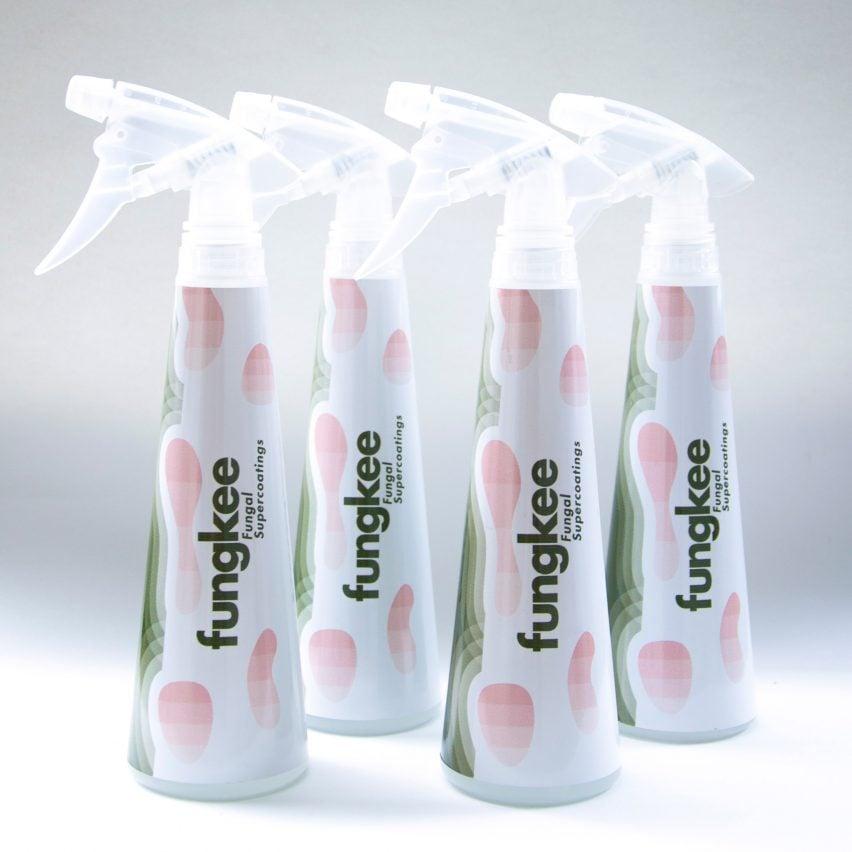
Van der Leest is exploring whether fungus can be used instead of plastic to make these plant-based leather materials more sustainable.
As well as testing different types of fungus in the lab, she has designed a speculative brand identity for the future product, which she calls Fungkee.
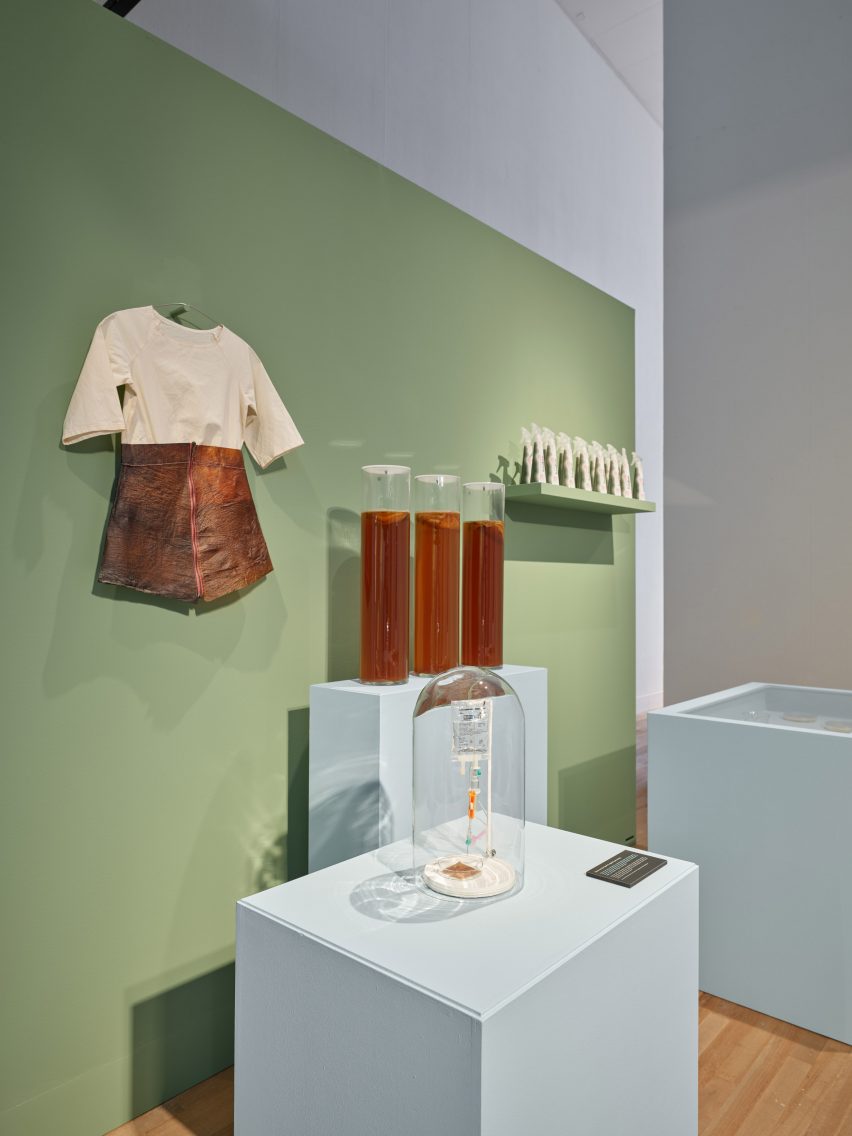
"To take a biomaterial and coat it with PU, which of course is plastic, doesn't really make sense to me," said Van der Leest.
"In nature there are all kinds of different waterproof coatings, on leaves, on mushrooms, on the shields of insects," she told Dezeen. "I made it my goal to find a fungus that could coat this material."
Based on initial results from the lab, the designer believes a product could be developed in the next five to 10 years.
"In 10 years, I can see a lot of companies and designers using this product," she told Dezeen. "That's my wish."
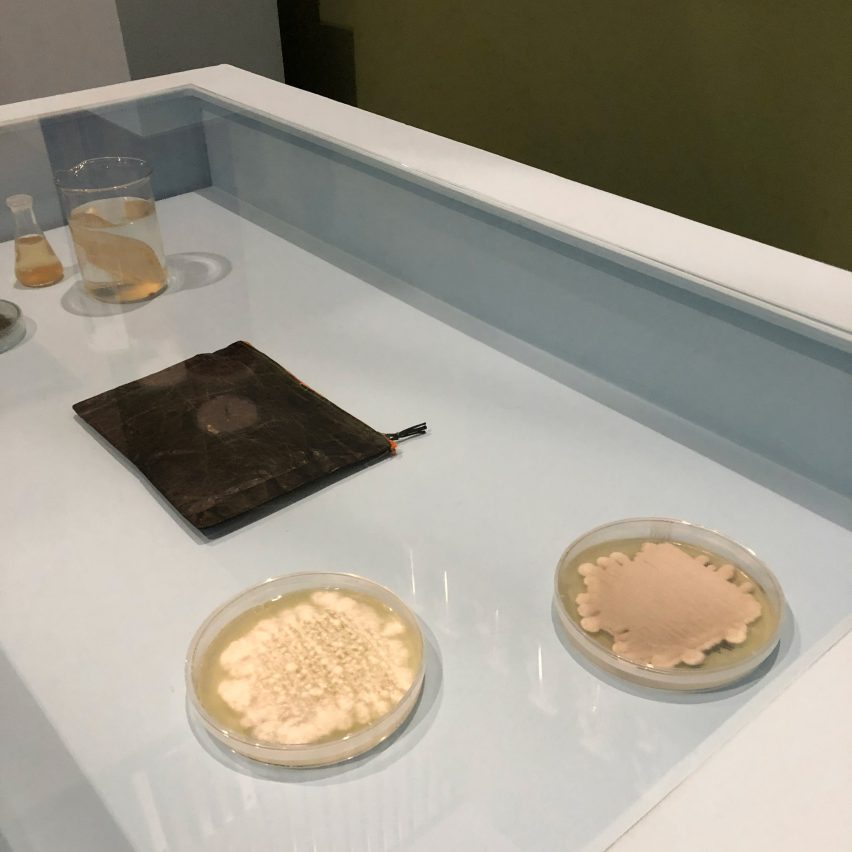
Van der Leest is developing the concept in partnership with cell biologist Aneta Schaap-Oziemlak. In 2019, the pair were awarded the Bio Art & Design Award, a €25,000 prize that helped them get their research off the ground.
They spent six months working with mycology experts Paul Verweij and Sybren de Hoog of the Radboud University Medical Center in Nijmegen, over which time they were able to prove their concept works.
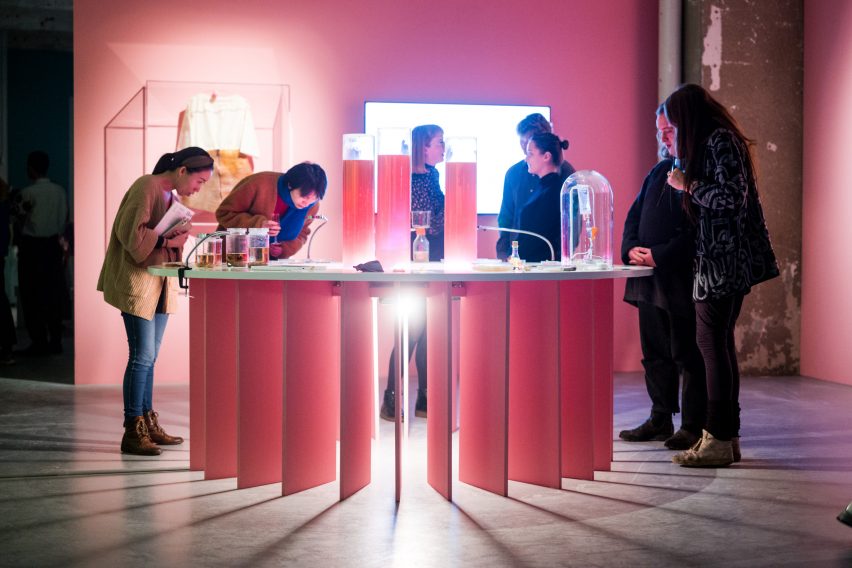
For the initial tests, Van der Leest chose a specific type of bio-leather made from bacterial cellulose. This material is effectively grown, by cultivating bacteria and yeast in a vat of liquid.
Van der Leest became familiar with this material after working with Suzanne Lee of BioCouture, a designer who has pioneered bacterial bio-materials.
"That was when I realised how difficult it is to create 100 per cent naturally grown material from organisms," she said.
"Even then, you still need to design in properties that make the material water-repellent."
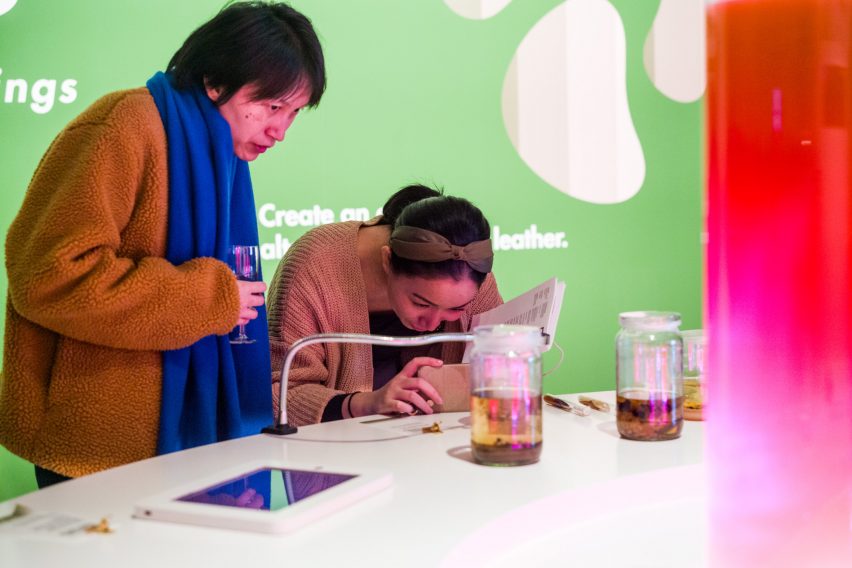
The concept developed by Van der Leest and Schaap-Oziemlak is for a fungal coating that doesn't just cover the material but actually wraps the cellular structure.
They create this coating by cultivating mycelium spores in liquid and found one particular fungus that gave them the result they were looking for.
"We saw fungal strains growing invasively through the material, which was a good sign," said Van der Leest.
"They weren't biodegrading the material, they were using it as a kind of home. That was one of our goals."
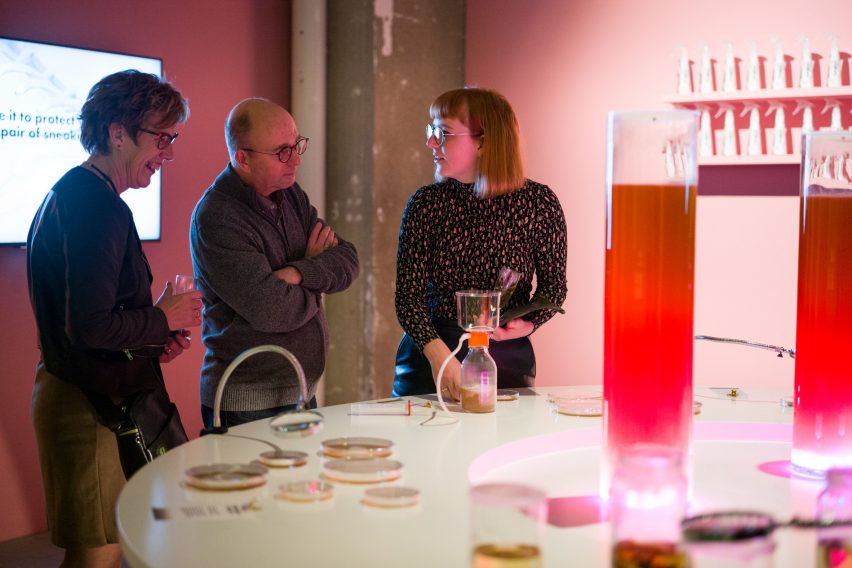
Although the coronavirus pandemic caused delays to the research, the designer plans to continue pursuing her goal of turning Fungkee into a commercially viable product.
Her ambition is for the coating to be used both by industry and consumers. As well as bio-leathers, she hopes to be able to replace PU in other textiles, for instance, on tent fabric.
"It's very interesting to see how you can develop materials or products that are more natural, but with the help of modern science you can scale them," she added.
Fungkee was exhibited at the recent Dutch Design Week, in an exhibition titled It's in our Nature.
Dutch Design Week ran from 16 to 24 October 2021 at venues across Eindhoven. See Dezeen Events Guide for an up-to-date list of architecture and design events taking place around the world.